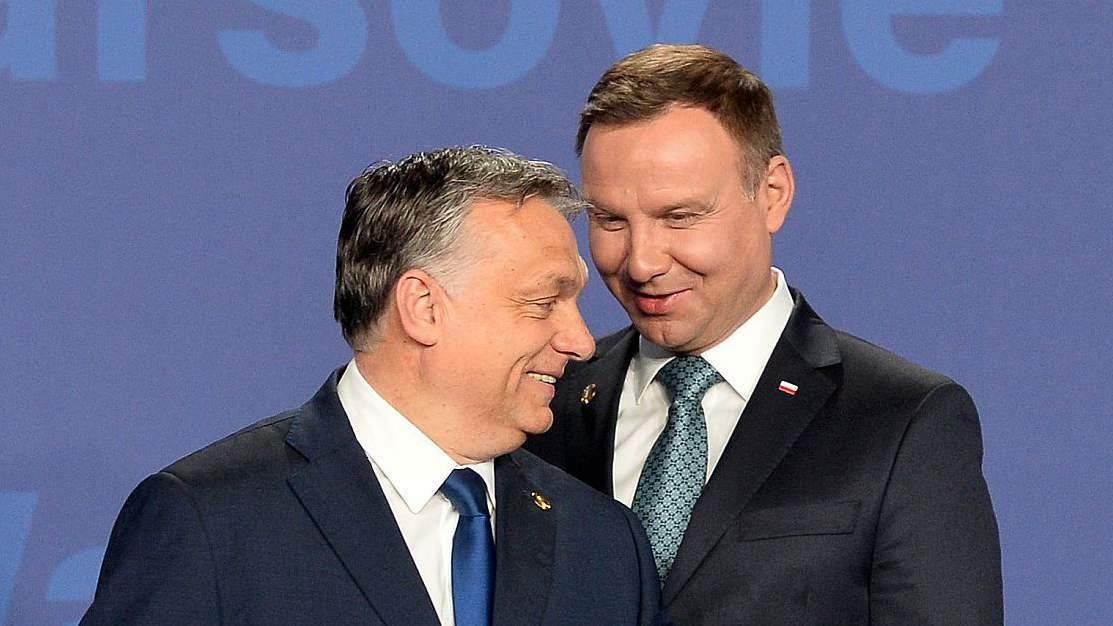Polish President Andrzej Duda is set to visit Hungary on Saturday, also "The Day of Polish-Hungarian Friendship" amid its judicial reforms disputes with the EU.
In 2007, the respective parliaments of Poland and Hungary declared March 23 as the "The Day of Polish-Hungarian Friendship."
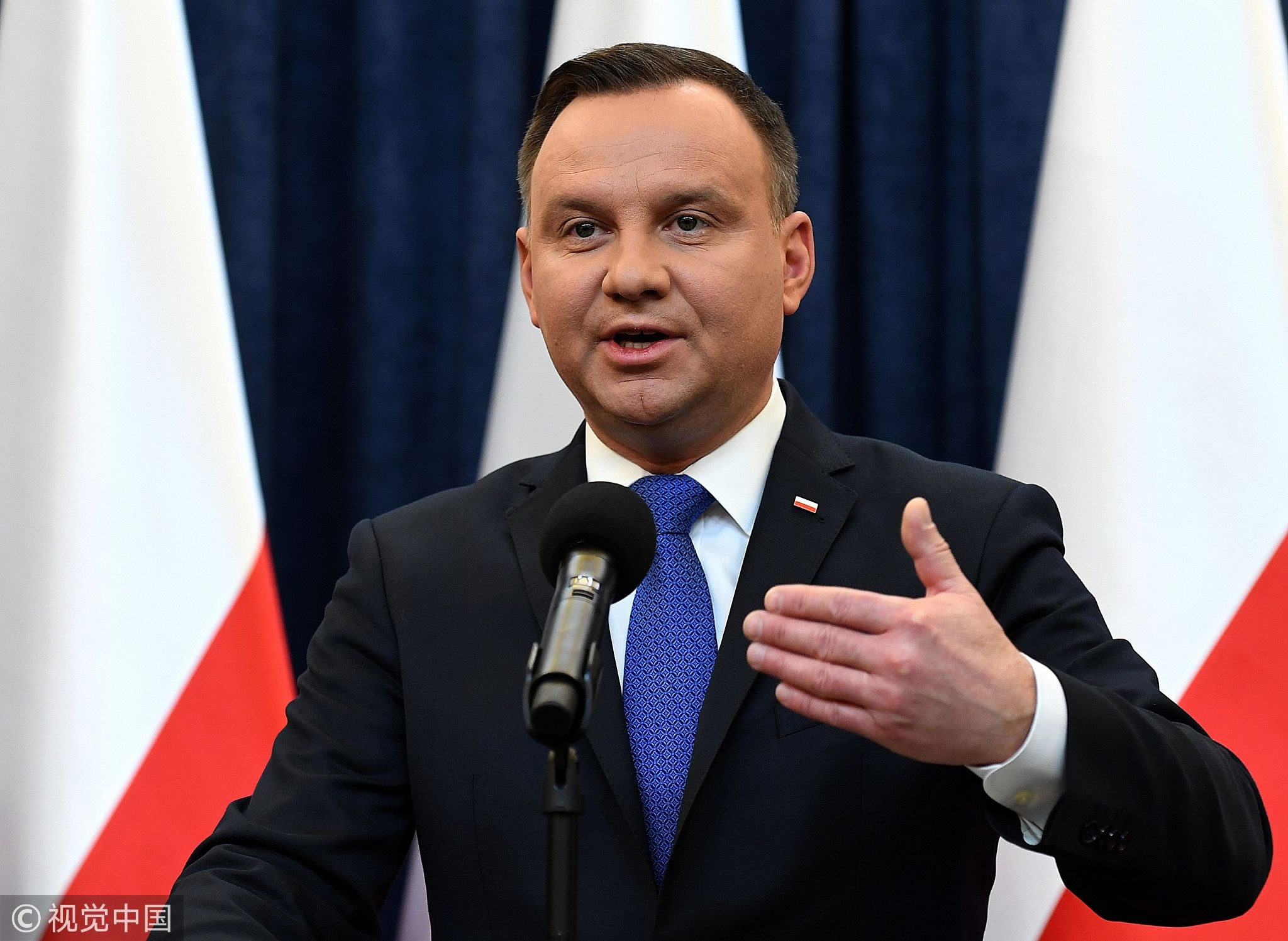
Poland's President Andrzej Duda gives a press conference on February 6, 2018 in Warsaw. /VCG Photo
Poland's President Andrzej Duda gives a press conference on February 6, 2018 in Warsaw. /VCG Photo
Warsaw has sent its document to Brussels responding to EU objections on judicial reform late on March 20, shortly before the expiration of a European Commission deadline at midnight; however, the European Commission rejected Poland's defense.
Then, the Poland's ruling Law and Justice (PiS) party Thursday agreed to modify plans on its reform.
The backdrop
The European Commission last December threatened to trigger Article 7 against Poland in response to what it has said are "systematic threats" to the independence of the Polish judiciary and the rule of law. The sanctions could include suspension of Poland's EU voting rights.
The Polish government insists the measures are needed to overhaul the judicial system and combat corruption.
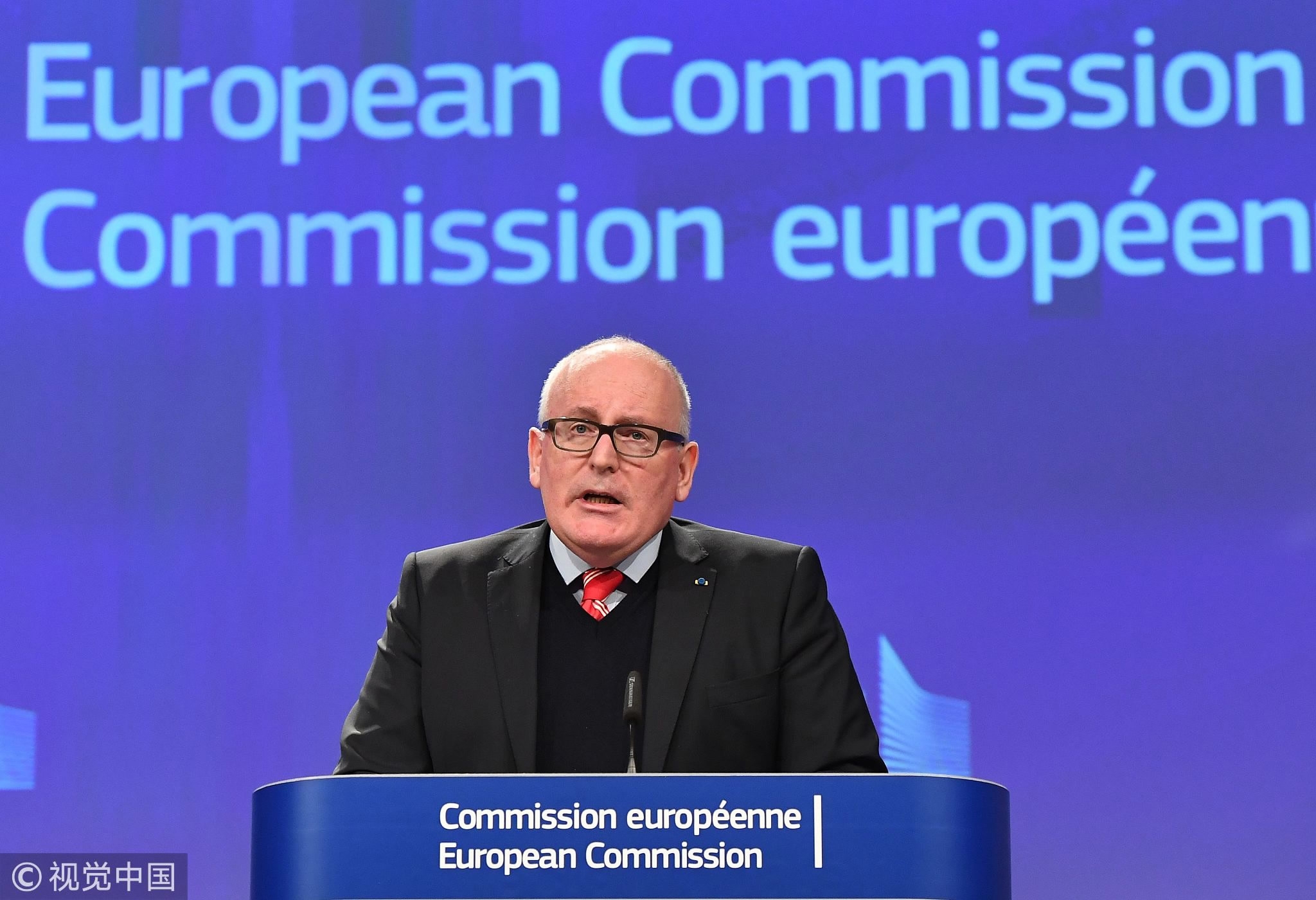
European Commission Vice-President Frans Timmermans addresses a press conference announcing the triggering of the Article 7 procedure to prevent a breach of the rule of law in Poland at the European Union Commission in Brussels, on December 20, 2017. /VCG Photo
European Commission Vice-President Frans Timmermans addresses a press conference announcing the triggering of the Article 7 procedure to prevent a breach of the rule of law in Poland at the European Union Commission in Brussels, on December 20, 2017. /VCG Photo
The Hungarian parliament last month voted in favor of the government supporting Poland in its fight with the European Commission over the rule of law.
The latest
The PiS lawmaker said on Thursday the modifications include three main aspects and hope the European Commission could positively take it:
1. The justice minister would first seek the opinions of judges before dismissing a court president. (The initial plan allows the justice minister to remove court presidents without any secondary opinions)
2. The compulsory retirement age for female and male judges would be set at 65.
(The initial plan sets female judges' retire age at 60 and men's at 65, which could make nearly 40 percent of the Supreme Court justices retire.)
3. The Polish president would have the right to decide whether a judge could work past 65.
(The initial plan gave the justice minister the power to make this decision)
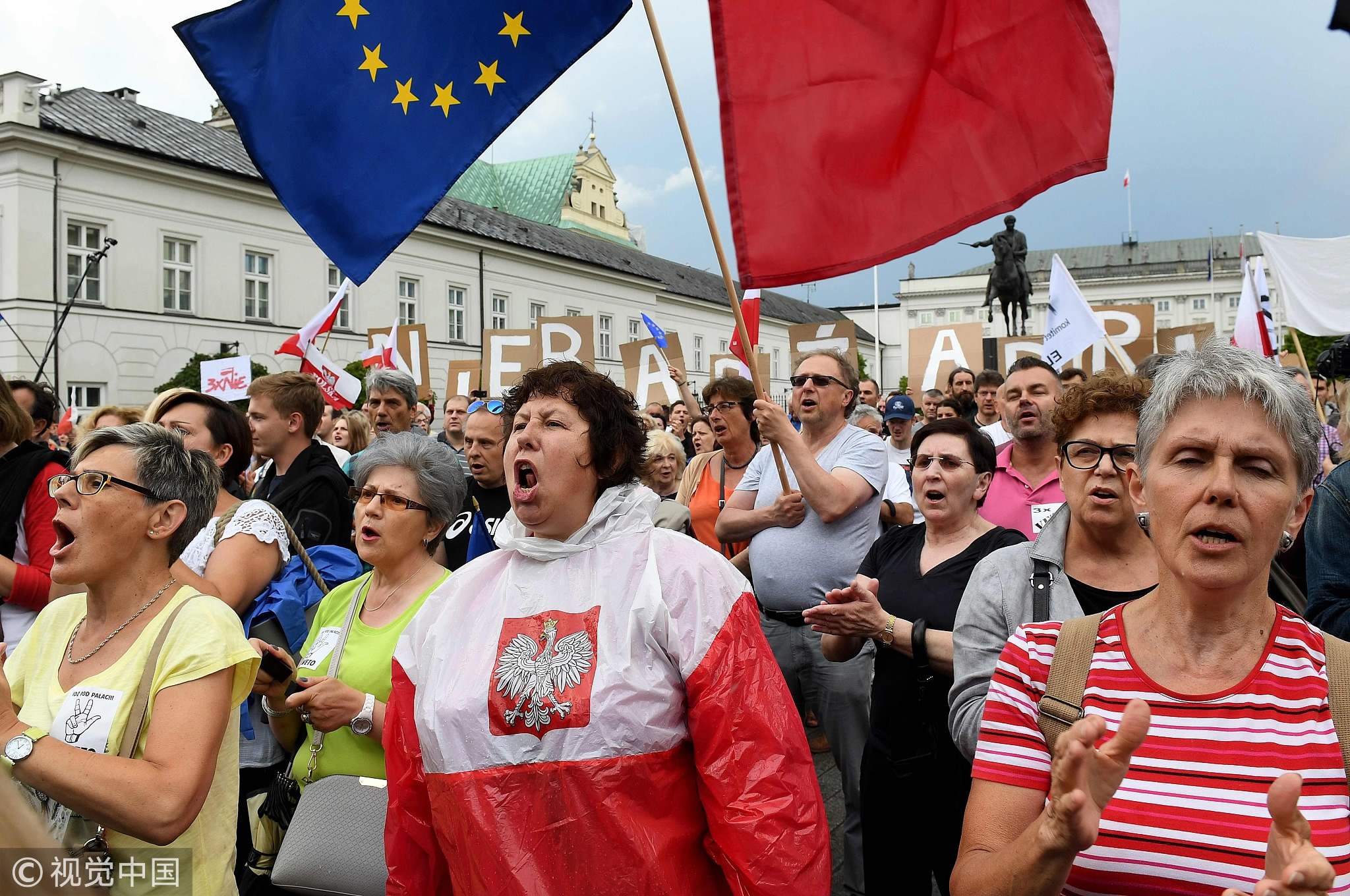
Protesters shout slogans during a protest in front of the presidential palace in Warsaw, as they urge Polish President to reject a bill changing the judiciary system on July 23, 2017. /VCG Photo
Protesters shout slogans during a protest in front of the presidential palace in Warsaw, as they urge Polish President to reject a bill changing the judiciary system on July 23, 2017. /VCG Photo
Two brothers with Awkward EU
Poland and Hungary are connected by nearly 1,000 years of intense political, economic, and cultural relations. Thus, bilateral ties are exercised tighter when fighting against Brussels.
Last year, they both rejected EU's refugee quotas and have received no asylum seekers.
Budapest voiced support for Poland's judicial reform also because it has received long-running EU criticism and pressure over what is seen by the EU as a Hungarian clampdown on democratic institutions.
Led by France and Germany, the EU is seeking to integrate the whole bloc economically and politically facing UK's departure. However, the two brothers are making it tougher for the EU.
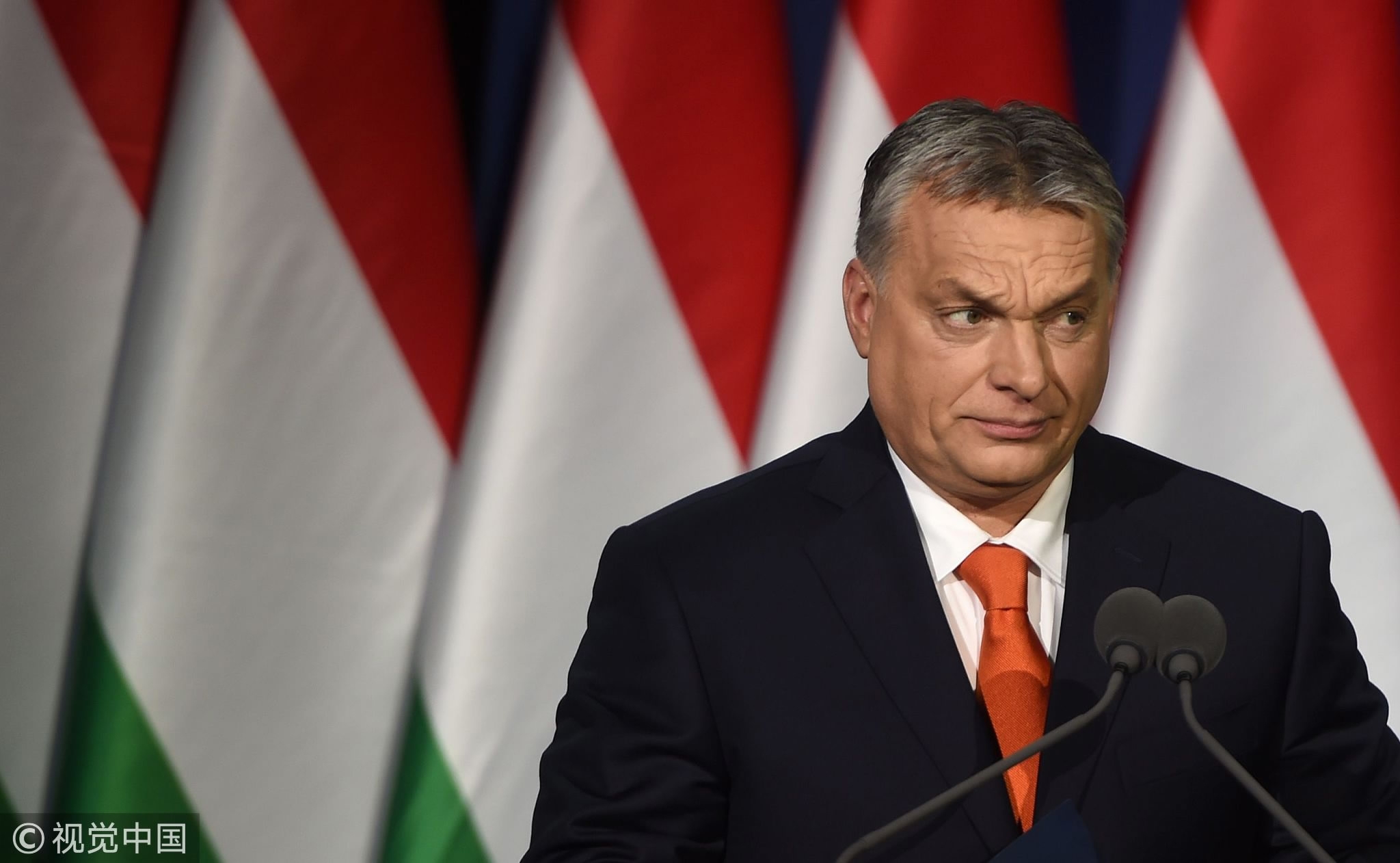
Hungarian Prime Minister and Chairman of FIDESZ party Viktor Orban delivering his state of the nation speech in front of his party members and sympathizers at Varkert Bazar cultural center in Budapest on February 18, 2018. /VCG Photo
Hungarian Prime Minister and Chairman of FIDESZ party Viktor Orban delivering his state of the nation speech in front of his party members and sympathizers at Varkert Bazar cultural center in Budapest on February 18, 2018. /VCG Photo
The EU also wants a consensus for its next long term EU budget (covering the period 2021-2027), a battle for the filling of the 10 billion euros gap left after the UK leaves the EU. Last time's negotiation for budget 2014-2020 took 29 months. The first round negotiation starts on Friday's EU summit.
What's next?
Plan details of the Polish position are unlikely to be discussed until the commission has pored over the text for its next weekly EU meeting.
Under current circumstances, experts predict that EU officials may call for the punishment of Poland by limiting its funding since Poland is the biggest beneficiary of EU money among the bloc's 28 member states.
With Hungary on the Polish side, EU officials probably don't have much to do because any punitive actions Brussels wants to take against one bloc member — including Article 7 — generally require the support of the rest of the states.
(With inputs from agencies)

